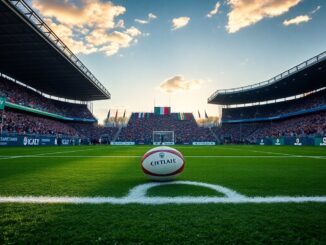Diogo Jota's tragic death brings to light the often-overlooked realities of life and loss in professional sports.

Topics covered
In light of the heartbreaking news about Liverpool star Diogo Jota and his brother Andre, we find ourselves grappling with the fragility of life and the profound impact of loss that extends beyond families to the wider community. As we piece together the details surrounding their untimely passing, it’s a stark reminder of how unpredictable life can be.
How can the sports world, and society at large, respond more effectively to such tragedies?
Analyzing the Situation: What Do the Numbers Tell Us?
The emotional weight of this tragedy is heavy, but it’s crucial to take a step back and look at the broader picture.
Road accidents, especially those involving high-performance vehicles, often lead to devastating outcomes. Jota’s crash, while driving a £180,000 Lamborghini Huracan, raises important questions about vehicle safety and driver awareness.
Traffic safety statistics reveal that high-performance cars are disproportionately involved in fatal accidents, largely due to their speed capabilities and the behavior of their drivers.
Reports indicate that the accident occurred as Jota attempted to overtake another vehicle, potentially worsened by a blown tire—a common trigger for sudden loss of control in high-speed situations. This tragedy serves as a wake-up call for better safety measures and increased awareness, particularly for athletes and high-profile individuals who might be more inclined to take risks on the road.
Lessons Learned from Similar Cases
Jota’s accident isn’t an isolated incident; the sports world has seen its fair share of road-related tragedies. Take, for instance, the loss of legendary Formula 1 driver Ayrton Senna in 1994, which underscored the need for improved vehicle safety and driver training. Similarly, the tragic death of NASCAR’s Dale Earnhardt in 2001 brought to light the urgent requirement for stricter safety regulations.
Each of these incidents serves as a bitter reminder of the real consequences of reckless driving and emphasizes the need to prioritize safety over speed. As Jota’s family and the football community come together to mourn, it’s vital to reflect on these lessons and advocate for meaningful changes within the industry. Providing athletes with comprehensive training on road safety and the risks associated with high-speed driving could help avert future tragedies.
Practical Takeaways for Athletes and Fans Alike
The loss of Diogo Jota is a chilling reminder for both athletes and fans about the unpredictability of life. For athletes, it highlights the importance of maintaining a balanced lifestyle that values not just physical performance but also mental health and safety. The pressures of professional sports can sometimes lead to choices that jeopardize safety, such as taking reckless risks while driving.
For fans, this tragedy prompts a moment of reflection on the lives of the athletes they admire. Behind the public persona, these individuals face the same life challenges and risks as anyone else. Supporting athletes in their personal lives, advocating for their well-being, and recognizing the significance of safety can foster a more sustainable sports culture.
Conclusion: Remembering the Legacy of Diogo Jota
As we mourn the loss of Diogo Jota and his brother, it’s essential to remember that their legacy extends beyond their achievements in football. Their untimely deaths remind us of the importance of valuing life, advocating for safety, and supporting one another during difficult times. The sports community must unite to ensure that such tragedies do not recur, embracing the valuable lessons learned from this heartbreaking event.




